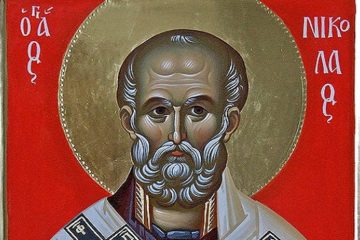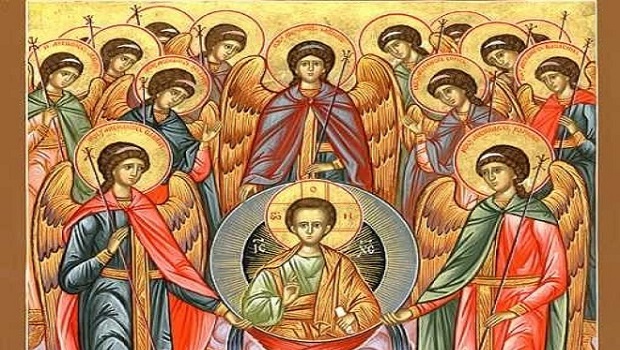Metropolitan of Pisidia Sotirios
In his Letter to the Philippians, the great Apostle to the Nations, St.Paul urges us to always be joyful. He stresses it repeatedly, that the Christian should always have joy. Along with this, he also tells us the ways a Christian can manage to do so, even in the midst of problems and difficulties. To have a calm spirit, and not give in to melancholy, fear, agony or turmoil.
First, he advises us to be friendly and conciliatory towards others. To understand other people and not quick to anger: “Let your gentleness be known to all men” (verse 5). No matter how hard this may seem to us, it can be done if we remember that all the things that bother us are temporary. Situations change quickly. That is why the Apostle adds, “The Lord is at hand” (verse 5). In other words, he is encouraging us to be patient, for Christ will not fail to reward us for our patience.
The everyday difficulties of life can bring uncertainty about the future and disturb the soul. This poisons a person with needless fear. In contrast, we can confront daily life the right way by leaving everything in God’s hands. With peace in the heart and grateful prayer to Him, we can do what we need to do, without being troubled: “Be anxious for nothing, but in everything by prayer and supplication, with thanksgiving, let your requests be made known to God” (verse 6). If we continue to do this, with full confidence in God, then “the peace of God which surpasses all understanding”(verse 7) comes to us in ways that we cannot imagine. The Grace of God fills the heart of the Christian with peace and assurance. God’s peace does not depend on outside factors; it is God’s gift to the heart of every person who trusts in Him. When this happens, a person can experience the power of God in their life, which the Apostle describes later.
When a person is finally free of the anxiety and agony that fills them, they can then seek those things which are truly good for the soul and provide comfort. It is then that the Christian thinks about and wants “whatever things are true, whatever things are noble, whatever things are just, whatever things are pure, whatever things are lovely, whatever things are of good report, if there is any virtue and if there is anything praiseworthy” (verse 8). The kind of life we are hearing the Apostle describe may seem impossible to us sometimes. We have become used to having problems and agony in our lives. However, St. Paul put all these things into practice and is speaking to us from experience, as he does to the Philippians: “The things which you learned and received and heard and saw in me, these do, and the God of peace will be with you” (verse 9).
All the saints of our Church followed this exhortation as well, and they succeeded in keeping this peace of God inside of them. No matter what temptations, difficulties, pains or sorrows they faced, it was impossible to take away the joy they felt. On the contrary, they had such hope and certainty of final victory that they used to say, with St. Paul, that “I rejoice in my passions.” In other words, I feel blissful in my heart even more as I suffer. This is the secret of true and everlasting joy, which Holy Scripture teaches us about.
Source: pemptousia.com




0 Comments